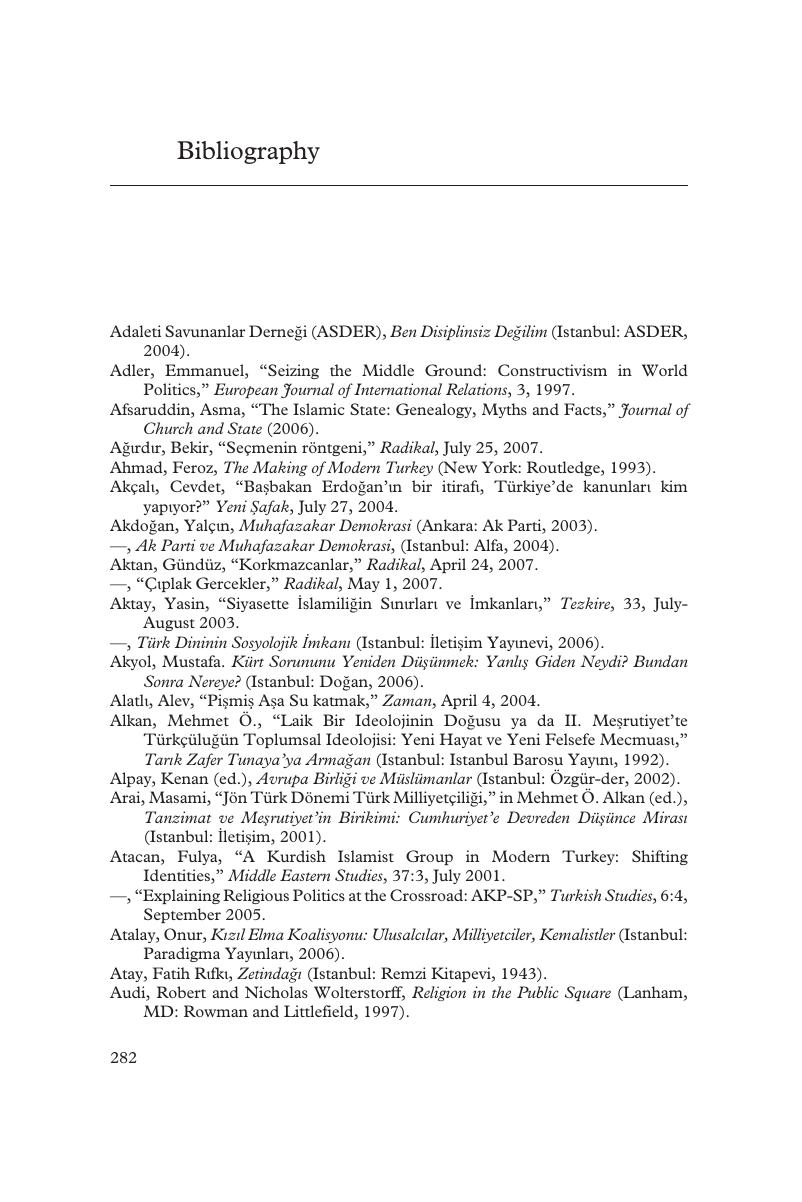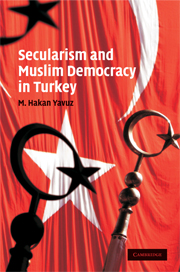Book contents
- Frontmatter
- Contents
- Preface
- Abbreviations
- Map of Turkey
- Introduction: what is an Islamic party? Is the AKP an Islamic party?
- 1 Historical and ideological background
- 2 Political and economic origins of the AKP: opportunity spaces and the backlash of February 28, 1997
- 3 Ideology, leadership and organization
- 4 Kabadayı and mağdur: Erdoğan and Gül
- 5 Modes of secularism
- 6 The Kurdish question and the AKP
- 7 The foreign policy of the AKP
- 8 The political crisis and the 2007 elections
- Conclusion: the end of dual sovereignty and the creole political language
- Bibliography
- Index
- CAMBRIDGE MIDDLE EAST STUDIES 28
- References
Bibliography
Published online by Cambridge University Press: 05 June 2012
- Frontmatter
- Contents
- Preface
- Abbreviations
- Map of Turkey
- Introduction: what is an Islamic party? Is the AKP an Islamic party?
- 1 Historical and ideological background
- 2 Political and economic origins of the AKP: opportunity spaces and the backlash of February 28, 1997
- 3 Ideology, leadership and organization
- 4 Kabadayı and mağdur: Erdoğan and Gül
- 5 Modes of secularism
- 6 The Kurdish question and the AKP
- 7 The foreign policy of the AKP
- 8 The political crisis and the 2007 elections
- Conclusion: the end of dual sovereignty and the creole political language
- Bibliography
- Index
- CAMBRIDGE MIDDLE EAST STUDIES 28
- References
Summary

- Type
- Chapter
- Information
- Secularism and Muslim Democracy in Turkey , pp. 282 - 294Publisher: Cambridge University PressPrint publication year: 2009



